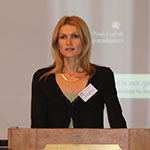Euroacademia Conferences
 Europe Inside-Out: Europe and Europeanness Exposed to Plural Observers (9th Edition) April 24 - 25, 2020
Europe Inside-Out: Europe and Europeanness Exposed to Plural Observers (9th Edition) April 24 - 25, 2020 Identities and Identifications: Politicized Uses of Collective Identities (9th Edition) June 12 - 13, 2020
Identities and Identifications: Politicized Uses of Collective Identities (9th Edition) June 12 - 13, 2020 8th Forum of Critical Studies: Asking Big Questions Again January 24 - 25, 2020
8th Forum of Critical Studies: Asking Big Questions Again January 24 - 25, 2020 Re-Inventing Eastern Europe (7th Edition) December 13 - 14, 2019
Re-Inventing Eastern Europe (7th Edition) December 13 - 14, 2019 The European Union and the Politicization of Europe (8th Edition) October 25 - 26, 2019
The European Union and the Politicization of Europe (8th Edition) October 25 - 26, 2019 Identities and Identifications: Politicized Uses of Collective Identities (8th Edition) June 28 - 29, 2019
Identities and Identifications: Politicized Uses of Collective Identities (8th Edition) June 28 - 29, 2019 The European Union and the Politicization of Europe (7th Edition) January 25 - 26, 2019
The European Union and the Politicization of Europe (7th Edition) January 25 - 26, 2019 7th Forum of Critical Studies: Asking Big Questions Again November 23 - 24, 2018
7th Forum of Critical Studies: Asking Big Questions Again November 23 - 24, 2018 Europe Inside-Out: Europe and Europeanness Exposed to Plural Observers (8th Edition) September 28 - 30, 2018
Europe Inside-Out: Europe and Europeanness Exposed to Plural Observers (8th Edition) September 28 - 30, 2018 Identities and Identifications: Politicized Uses of Collective Identities (7th Edition) June 14 - 15, 2018
Identities and Identifications: Politicized Uses of Collective Identities (7th Edition) June 14 - 15, 2018
EU vs Western Balkans: Life on the Margins of a Great Community
-
-

-
Presentation speakers
- Ivana Božić Miljković, Faculty of Law and Business Studies Dr Lazar Vrkatić, Novi Sad, Serbia
- Download presentation
Abstract:
Symbolically marked by the fall of the Berlin Wall in 1989. the end of the cold war meant the new historic era of union and prosperity of West European people. At the same time, the rest of Europe was in front of historic temptation of radical political and economic and systematic changes, which will make them possible to become the part of the new era of modern and united Europe. Including in the process of transition became the imperative for all the European countries which apprehended the necessity of changes and perceived their future within the frame of European Union. This process has been successfully completed in the most of countries which was acknowledged by European Union membership. However, there is a group of countries in the literature and political practice known as West Balkan. It is consisted of: Albania, Bosnia and Herzegovina, Montenegro, Croatia, Macedonia, and Serbia. They are mostly small countries very important for the development of political and economic relations on Balkan and in Europe. This group of countries, according to achieved results in the transition process, is far behind. They are burdened by numerous political problems with the repercussions on their mutual political relations, their economic development, and mutual economic cooperation and in the results in the process of Euro integrations. But, common ambition of all these countries is the membership in the European Union. This ambition, first of all inspired by the motive of faster economic development and desire for West Balkan to become part of the Europe in the economic sense just as it is in the geographic, historic and cultural aspect. It is the fact that European Union itself would not have the economic benefit of the acceptance of the West Balkan countries in its membership. Its motives are more of political and security nature, because the political instability of the sub Region may have far reaching consequences on the whole of Europe stability. That is why the European Union insists on peace and stability establishing in this region, and set conditions for the acceptance in the membership, being strict at the first sight are in the long run in the function of faster and quality improvements of the West Balkan countries development.
-
Related Presentations

The Europeanization of Balkans: Yes or No!?
- Liljana Siljanovska

West versus East – A Question of Trust
- George Yuryev and Ekaterina Bagreeva
















